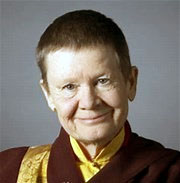The last post did a short analysis of the causes and voting behavior of the electorate’s response to the candidates. In this post, we look forward – not so much about the cabinet and key players in the White House, which looks neither republican nor democrat but certainly a team who will fumble as the weight of running a democratic republic falls upon them. We must give them time to fumble and see how they recover.
The Guru still is contributing to the mariner’s thoughts so our focus will address – in the looong view – well rooted troubles evidenced by the election and the consequences that will occur if they are not addressed.
Consider religion –
Guru blames our religious difficulties on Puritans and other fundamentalists who relocated in America because their practices did not fit well with a rapidly liberalizing Church in Europe. Even today, employees of Planned Parenthood may be shot, burned off the property, forced by a government who ignores the US Constitution to dismantle financial support, lay debilitating regulations upon them and otherwise ostracize Planned Parenthood from their presumed right to pursue basic human rights. When was it that Protestants stopped slitting open the length of every Quaker’s nose just because they were Quakers?
The current fundamentalist unrest should not even be an issue. The nation was clearly founded on freedom of religion. The pettiness is not really religious; it is the belief that because our money references God, the nation is a theocracy – just the conflict our founders wanted to avoid. If this conflict cannot be put to rest, the conservative theocratic movement will keep our politicians from dealing with tough issues through politically democratic compromise. The tea party folks came close to bringing down the US for good. Further, throughout time since the beginning, religious practices have changed as society changed – but not without questionable abuses of religious doctrine in defense of tradition. It is not enough to be an American Citizen and be safe from beheadings and genocide by ISIL; we owe our own nation loyalty to its premise of freedom for all citizens. Being citizens of the only nation in the world that defines itself as ‘freedom for all citizens’ requires even the religiously devout to – in this nation at least – be loyal to that principle. Religious faith is relevant or it becomes destructive if not meaningless.
We need all three branches of the Federal Government and state governments as well to deal successfully with international politics, greed-based corporatism, scientific knowledge that may leave us on a pile of extinct species before we may want to do that and a planet that is pretty much fed up with us. The new world of governance cannot be held back by regional faith; virtually every issue will require international agreements involving many faiths, cultures and races.
Consider economics –
The United States is founded on principles never before used to run a nation. US citizens were required to manage themselves. True, there was a republic but that was for serious things like war, taxation, balance of national economy, and dealing with other nations. In practice, citizens believed in freedom – the principle that everyone could pursue a successful life without oppression; they were free to believe independent religious beliefs – the principle that ethnicity and prejudice would not interfere with the pursuit of happiness; and they believed in loyalty to their fellow citizens to support the principles of freedom of faith, freedom of opportunity, and the personal and cultural loyalty to believe in freedom for everyone. In other words, citizens had to believe in their nation’s principle and manage themselves as keepers of freedom.
Freedom includes citizen wellbeing. If one citizen takes from another unjustly, or prevents a citizen from opportunity, or fair exchange for labor, in public discourse protects a citizen’s equal rights under the Constitution but consciously interferes with citizen freedom as a shared right, to a just and fair economy owned by everyone, then the US concept that everyone has freedom to pursue life and liberty has disappeared. Mariner does not suggest every citizen be equal in assets but taking more than is deserved, necessary or leveraging dishonestly is not in the interest of the US – which depends on each citizen to be loyal to the right of equality and freedom.
Corporatism is the belief in profit above freedom; Corporatism provokes class prejudice; Corporatism is free of allegiance to freedom, compounded by guaranteed protection as a human participant, a corporation is a double-barreled abuse of the founding fathers’ intentions.
Consider Globalism.
The mariner groups several diverse movements under this term: corporatism, technology, biological progress through medicine and chemistry, protection of the biosphere, and competition by war for greedy and ideological reasons. All these activities have one thing in common: they are not based on the concept of nationalism; they are not based on one nation’s philosophy of government; and by definition, globalism cannot be allocated to nations individually.
If the reader thinks it has been a hard row to move humanity from 1760 to 2016, prepare for even more from 2016 to 2272. A person alive today cannot fathom what civilization will be like 256 years from now.
One wonders what events, provocations, inventions and changes in principles of governance will be required – either collaboratively or with great conflict – to achieve insights and rules that achieve solutions to global issues humanity has never experienced – let alone survive in the process. The triangle of strength and success written by Os Guinness[1] and resurrected by Eric Mataxas[2], that is, “Freedom requires virtue; virtue requires faith; faith requires freedom” is the only tool set available. Considering advancing historical eras by government ideologies, The United States is the beginning of a new, common governance that may be the only ideology capable to take on Globalism:
Freedom, if you can keep it.
[1] Os Guinness is an English author and social critic. Born in China, where his parents were medical missionaries, he is the great-great-great-grandson of Arthur Guinness, the Dublin brewer. He was a witness to the climax of the Chinese revolution in 1949, and returned to England in 1951, where he went to school and college. He received a B.D. from University of London in 1966 and a D.Phil from Oriel College, Oxford in 1981. Guinness first stated the Freedom Triangle when promoting his book, A Free People’s Suicide. Guinness is still alive at age 75.
[2] Reference to the Freedom Triangle is resurrected by Mataxas in his book If You Can Keep it, the Forgotten Promise of American Liberty. 2016 best seller. Mariner believes this book is required reading for every American citizen.
Ancient Mariner
 In the end, does a personality select the edifice shape?
In the end, does a personality select the edifice shape?

